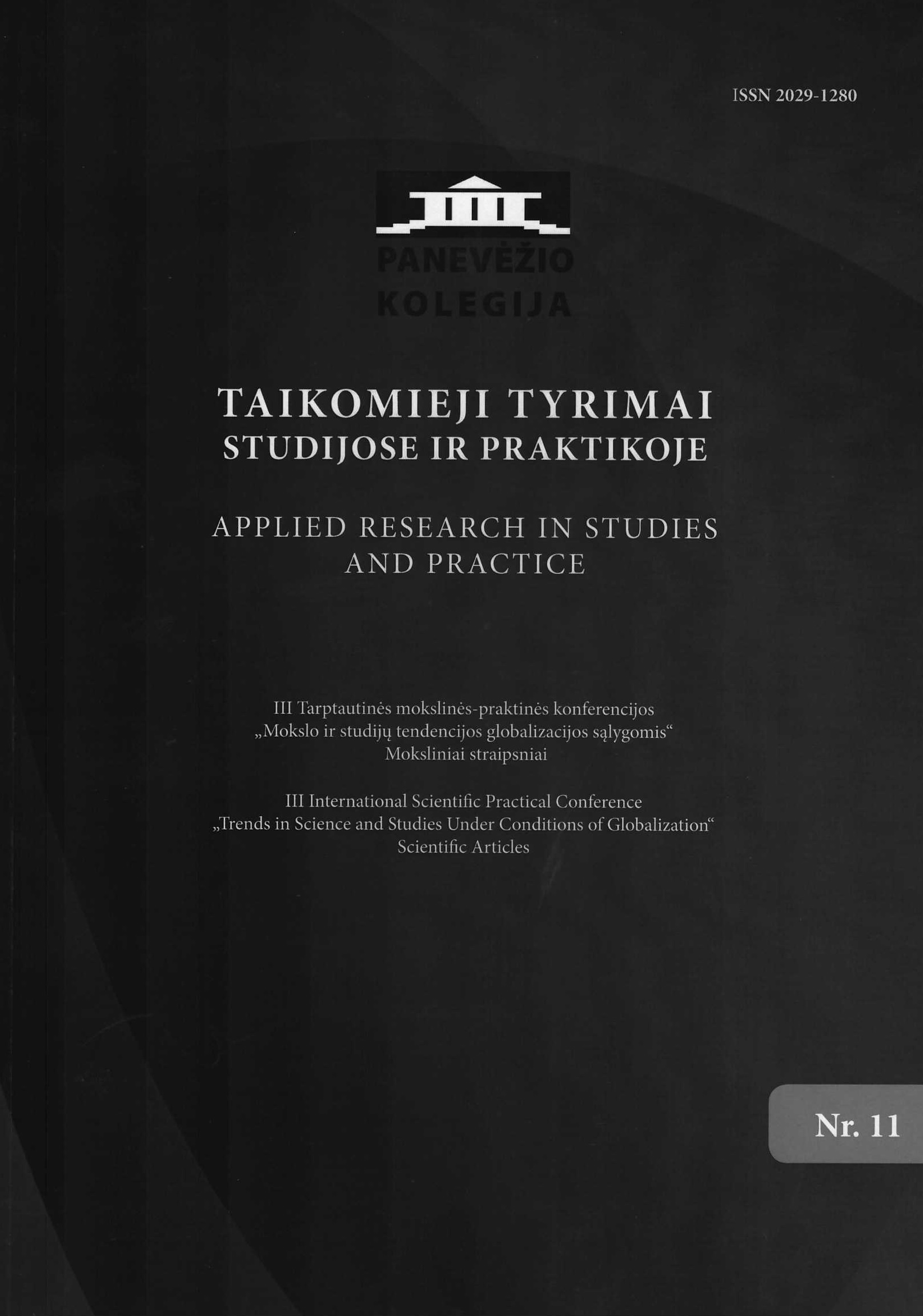Modulinio mokymo bendrojo ugdymo mokykloje praktika
ModularTeaching Practice at Secondary School
Author(s): Romas Prakapas, Dalia PrakapienėSubject(s): Education, School education
Published by: Panevėžio kolegija
Keywords: modular teaching;general education;secondary school
Summary/Abstract: This article presents the organization of modular teaching at Lithuanian secondary schools in 2005-2012 which is in accordance with the carried out education modernization projects nationwide. Modular teaching as one of the prospects in Lithuania to offer students more learning options has been actively discussed and analyzed only recently. The first attempts to focus on the modernization of education taking into account learning environment and learners were made in 2004 in the Education Development Center where questions regarding future curricula and the change of the form of education were posed. Referring to the strategic documents of that time and solving practical problems, several projects were implemented in Lithuania (2005-2012) during which modular teaching was tested only by a few Lithuanian schools; therefore, the study raised several problematic issues: what successes did the schools participating in the projects and trying to organize modular teaching in their institutions achieve? how do schools understand them? how beneficial was the participation of schools in these projects while organizing modular teaching?The study object was the practice of schools that organized modular teaching.The aim - to reveal the practice of organizing modular teaching at Lithuanian secondary schools.The objectives: (1) to summarize the theoretical assumptions of modular teaching organization in Lithuania, (2) to systemize the practice of secondary schools that organized modular teaching, (3) to evaluate it.The study sample - purposive, non-probability. Practice of schools which participated in the projects of modular teaching organization was analyzed and summarized.Methodology - the qualitative study was carried out using the case study strategy based on hermeneutics. The study applied methods of document analysis, reflection of activities, content and meta-analysis. An open encoding program Kokybis for qualitative research was used to process the survey data.Carrying out the analysis, curricula of individual schools and other information about the tested modules of basic and secondary curricula and other activities related to the application of modular teaching elements were analyzed. The study showed that breaking the curriculum down into modules is appropriate for organizing education. Applying modular teaching appropriately, it is possible to solve evaluation problems of students’ achievements, to improve their work when they are of different abilities and learning styles, etc. Most teachers feel the benefits of modular teaching for the students at the same noting the challenges and organizational problems: extra workload, the need to constantly learn, to pursue educational interaction not only with the students, but also with the colleagues. Principles often focus on the success, however, in most cases, the abstract ones and avoid identifying directly the difficulties they encountered and the solutions they selected.The study drew brief conclusions: In general modular teaching at schools is perceived as a teaching direction that is focused on the curriculum broken down into finite learning units (modules). The organization of modular teaching is modeled on the basis of the objective to offer more learning direction options; however, the reflections submitted by the schools lack clear articulation of the concept modular teaching.The analysis of school experience confirms that strong motivation of students is one of the most important preconditions of successful education (learning). Exploring the students’ innate abilities, interests and taking into account the needs of their future profession and career, conditions may be created for the students to learn more actively and creatively, to help unfold their strengths, and to help gain confidence in their knowledge and competences. Schools, in order to help reveal students’ more practical tendencies, exerted a lot of effort to link the educational process and the curriculum with practical activities. Teachers looked for and tried different options how to adapt students’ acquired knowledge and skills of a subject in other lessons, and, thereby, effectively develop a range of competencies, reducing the students’ learning loads. One of the best ways - subject integration.Schools that participated in the projects tried all the modular programs developed by the experts and the teachers themselves and the mandatory or optional subject modules; moreover, they focused a lot on curriculum differentiation and personalization. In most cases, modular teaching ideas in the tested subjects of the educational process were intertwined, teachers tested a variety of teaching methods, techniques, didactic games, individual, group or project work because they sought the most efficient way to achieve better quality and to ensure each student’s learning success. In order to get the most comprehensive feedback, which would enable to purposefully plan further education (learning) and to provide effective assistance to a particular student, teachers used different methods of evaluation and self-assessment. A wide range of measures related to student assistance (vocational guidance and counseling) was tested when choosing further education or professional activities. The importance of teachers’ motivation, their expedient activities, cooperation and continuous professional development was proved.
Journal: Taikomieji tyrimai studijose ir praktikoje
- Issue Year: 11/2015
- Issue No: 1
- Page Range: 37-44
- Page Count: 8
- Language: Lithuanian

